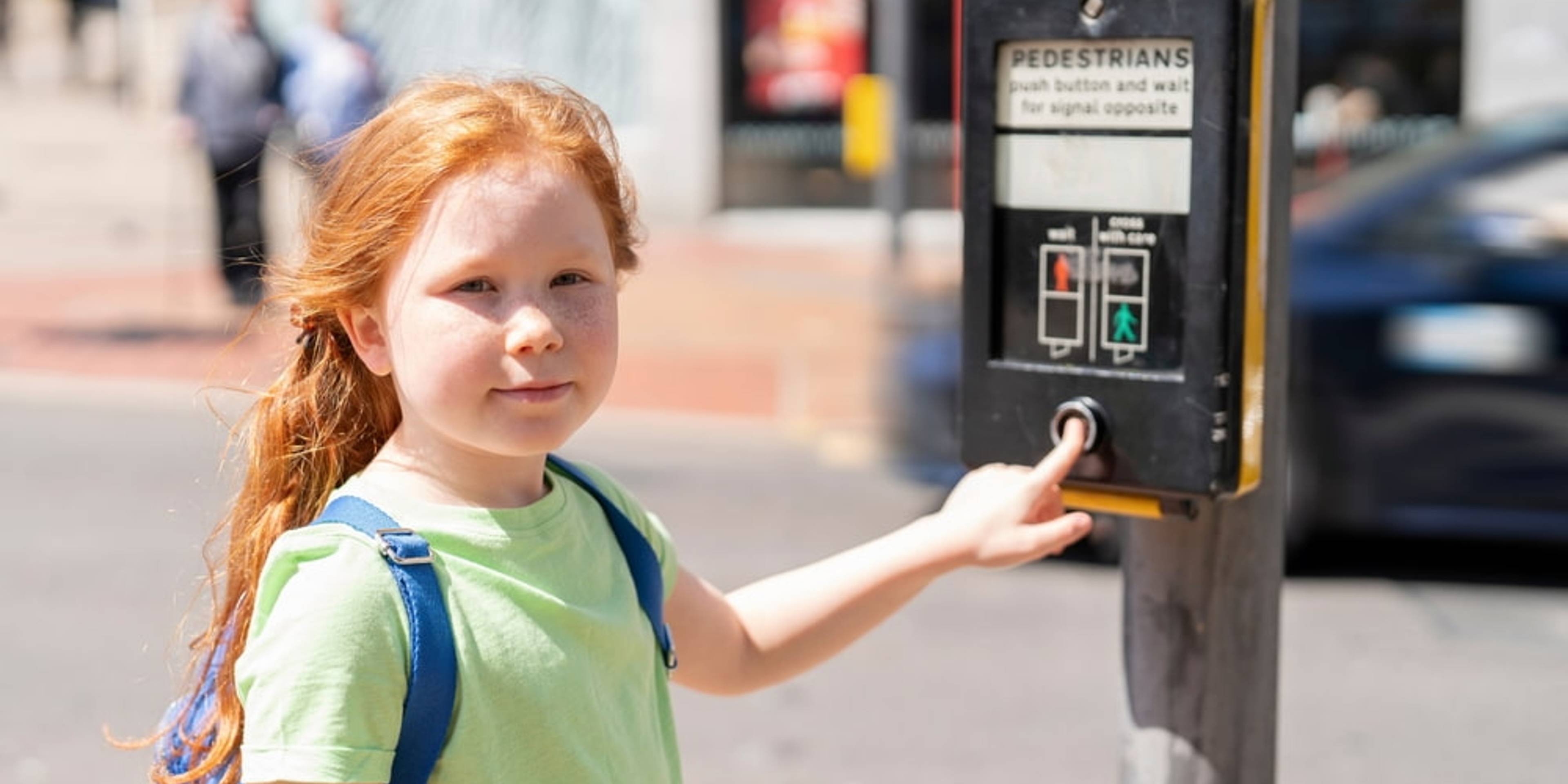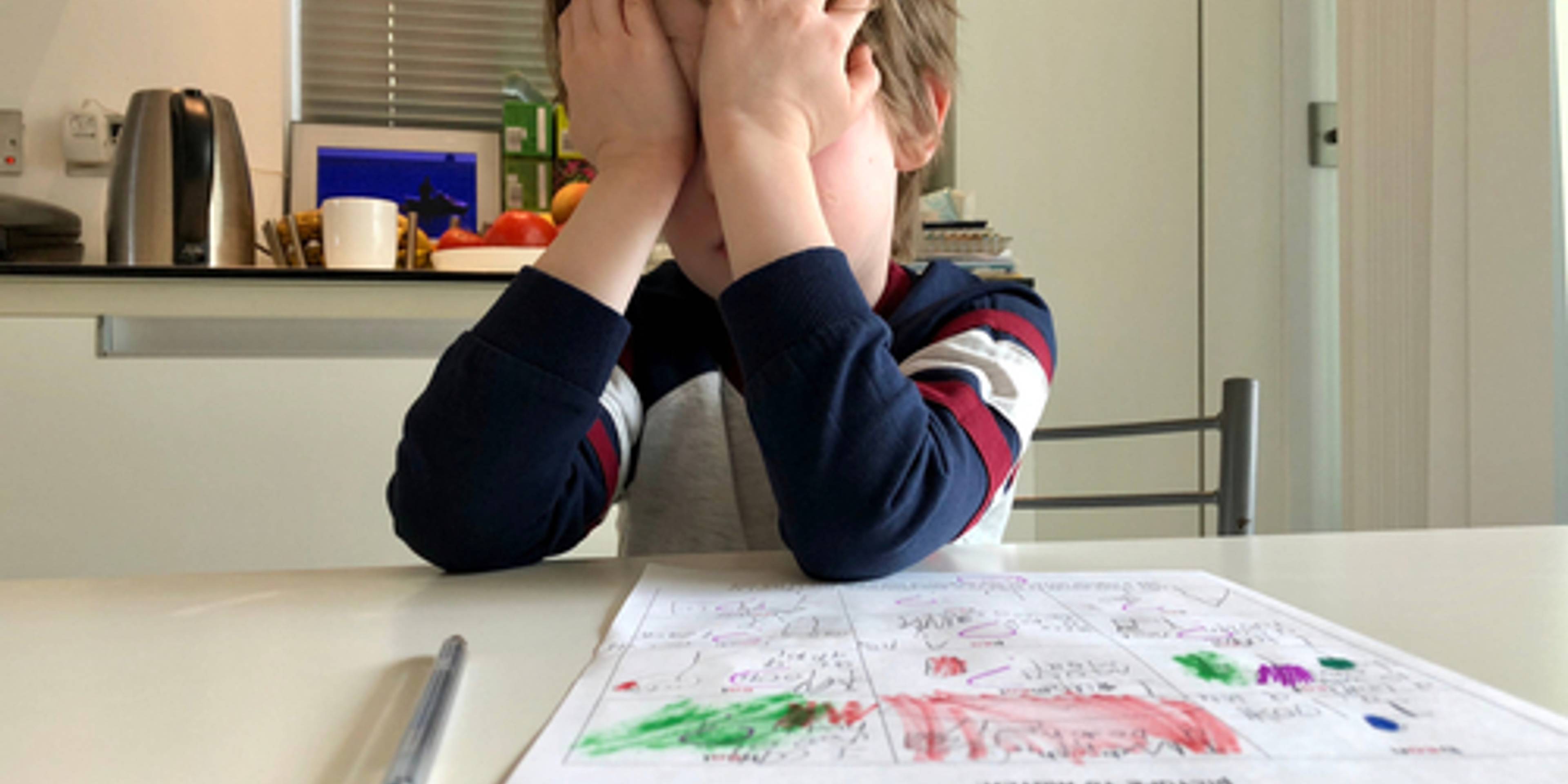June 23, 2025
There was an attempted abduction locally. How can I support my child?

Dr Kathy Weston shares some top tips.
"Help, there was news of an attempted abduction of a school child near where we live. How can I reassure and support my child without frightening her?"
It might not feel like it right now, but it’s worth knowing that stranger abductions of children are extremely rare. In the UK, there are around 500–600 reports of child abduction each year, but the vast majority are attempted rather than successful, and many are later reclassified as misunderstandings, rather than genuine abductions.
According to the UK’s National Crime Agency (NCA), most reported cases involve someone known to the child (such as a family member). Stranger abductions are typically fewer than 10 per year across the UK.
That said, it’s natural as loving parents to want to do everything possible to keep our children safe. As difficult as it is, even when we've heard upsetting news, it helps to model calmness in front of our children. Depending on your child’s age, you could gently explore the facts together and help put things into context. Without knowing the specifics of this case, I can’t advise on exact wording, but local police will often issue statements or safety guidance following incidents. These can be useful to read and share with your child if appropriate. Police might also increase their presence in the area, such as more uniformed officers or PCSOs, to help reassure families.
Children respond differently to this type of news. Some may brush it off entirely, while others may feel anxious. If your child seems worried, try to invite them into the conversation about what helps them feel safe. Ask:
- “What would make you feel more comfortable walking to school or going out?”
- “Is there anything you’d like to do differently this week to feel safer?”
Perhaps they’ll suggest walking with friends or setting check-in points. These ideas, when led by them, can build confidence and a sense of agency.
You can also use this moment to revisit everyday safety basics:
- Encourage them to stay alert. Remind them that wearing headphones or looking down at phones while walking can make it harder to stay aware of surroundings.
- Talk about road safety and staying alert near busy streets and junctions.
- Reinforce that if something feels "off", they should trust their instincts.
Safe words are especially helpful tools
For younger children, set a family code word - a word only you and your child (and any trusted adult you pre-authorise) would know. You can say: “What if someone said, ‘Your mum told me to pick you up’? That wouldn’t feel right, would it? Because we have a special code word, and only someone who knows it can be trusted.” Practising this helps them feel empowered and clear on what to do in that situation.
For teens, safe words can work differently. You might agree on a discreet phrase or emoji they can text you if they’re in a situation where they feel unsafe or pressured but don’t want to alert those around them. For example, they might text, “Did I leave my charger at home?” or send a specific symbol that means,“Please call me with an excuse to leave.” It’s a small step, but it gives them an escape plan and makes help easily accessible.
Also talk to older children and teens about:
- Booking rides through official, licensed taxi or app services only.
- Sharing travel plans with friends and family.
- Letting someone know when they’re leaving an event and when they expect to arrive home.
No matter their age, having clear, practical options in their minds about what to do if they feel unsafe helps children feel more in control and less anxious. You could also role-play a few “what if?” scenarios in a non-scary way to practise how they might respond.
Finally, show them that if something ever does make them feel worried or unsafe, they can always:
- Run toward people, not away - shops, schools, open houses.
- Use their phone to call you or 999 (you may want to practise how to access emergency services quickly).
- Shout loudly and draw attention.
Even though these conversations are uncomfortable, having them calmly and confidently sends a strong message: you are prepared, you care, and you trust them to look after themselves with your support.
Your school might like to download some free lesson resources from Action Against Abduction, a UK charity which works to protect children from the threat of abduction. Their Clever Never Goes campaign teaches children how to stay safe from abduction whether they are outside or online. It’s a modern, child-friendly alternative to the out-dated and fundamentally flawed ‘stranger danger’ message. Rather than fearing the worst in everyone they don’t know, Clever Never Goes helps children to recognise specific situations that are unsafe and gives them the tools to respond.
More Parenting Questions

Sep 18, 2025
I have a Year 5 daughter with severe food allergies. She had an incident last summer term where she ingested one of her allergens at school (incorrectly labelled ingredients) and she now has a lot of anxiety around food, and is worried that every tickle in her throat is the beginning of an allergic reaction. What can I do to help her?
Allergies are a constant source of anxiety for both young people suffering with them and parents/carers trying to empower their young person to manage positively. The role of the parents is complex, as there are two main responsibilities. Firstly, supporting their young person to risk assess appropriately in different environments and secondly, the harder task to help them manage the risks without overwhelming them with fear. It is a difficult, ever changing balancing act as the young person develops more independence over eating and managing their own diet.

Sep 15, 2025
Help! My 5-Year-Old son struggles with low self-esteem. What can I do? He has lost his grandparent recently, could that have something to do with it?
It can feel worrying to see a young child struggle with confidence so early in life. Thank you for raising this important question. The good news is that there are many simple, everyday ways you can help to build your son’s sense of self-worth.

Jun 17, 2025
My daughter (aged 10) has broken up with a friend. How can I help her?
It is the hardest experience as a parent, watching our children muddle their way through friendships, knock backs, being included then excluded, invited to parties and then kept at bay. We have all been there and it can feel emotionally painful and sad.

Mar 20, 2025
Help! My five year old is wetting the bed at night. What can I do?
You're not alone! Nocturnal enuresis, or bedwetting, is common in young children. We've asked paediatrician, Dr Christine Riyad, for advice.

Mar 17, 2025
My 10 year old is experiencing big emotions. Do you have any advice?
We've asked Dr Sophie Nesbitt, Consultant Child Psychologist, for her top tips.

Feb 12, 2025
Is it ok for my four year old to still use a dummy?
It's completely natural to feel concerned when your child continues using a pacifier or sucking their thumb beyond the toddler years. We've asked paediatrician, Dr Christine Riyad, for advice.

Dec 31, 2024
My son wants to buy his girlfriend an 18th birthday present. Help!
Give yourself a pat on the back as your teen is asking YOU for advice. It is a sign that there is good communication between you, and that he sees you as a source of knowledge! I think his question is a wonderful one. Why? Because it shows he values the relationship, recognises the importance of a milestone birthday and knows that gift-buying is not a simple activity.

Dec 18, 2024
What do we need to consider when thinking about hiring a tutor?
Private tutoring can be a great way to support your child's education, but finding the right person can also feel overwhelming. The tutoring industry is largely unregulated in the UK and so it can be challenging to know where to start or what to look for.

Oct 22, 2024
My 11 year old daughter is always hungry. Should I be concerned?
This is a common concern for many parents. Engaged and attentive parents are generally mindful of their child’s relationship with food. This is not surprising given the shameful narrative surrounding the idea of being overweight or obese, and the association that is often made that this is linked to neglectful parenting.

Jun 03, 2024
How can I best support my son with changes to his class next year?
Firstly, it is normal to worry about changes that lie ahead for our children and to worry about their ability to cope. You aren’t alone. The start of a new academic year is always full of changes to school life. New classrooms perhaps? Timetables? Teachers, pupils, curricula, canteen menus? You sound like you are holding a lot of anticipatory anxiety about the changes that are forthcoming. These changes have likely been explained to you by the school, and perhaps you still feel fearful?